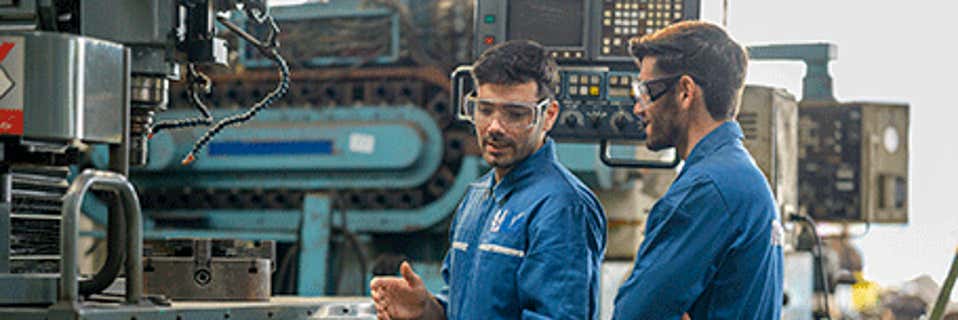Project management in manufacturing: risk and improvement

- Blog
- Project management
- Project planning
- Risk management
- PRINCE2
March 31, 2021 |
3 min read
- Blog
- Project management
- Project planning
- Risk management
- PRINCE2
How well recognized is the value of project management and project managers in manufacturing?
While the importance of project management doesn’t need to be sold to industries like oil and gas or pharmaceuticals, my experience in manufacturing suggests it is some way behind in its project approach.
With so much competition and tight profit margins, the focus tends to be: “We’ve just got to get it done”; and I often heard the phrase, “We’re not planners, we’re do-ers.” The introduction of projects and project management can upset certain manufacturing teams who say: “What is it now? Why don’t you just leave us alone to get on with it?
However, just “doing” isn’t always the right solution, which is why I think there are gaps where manufacturing can benefit from project management and particularly the principles in PRINCE2®. Also, the value of this knowledge extends beyond people who are project managers by profession.
PRINCE2 principles in action
- Continued business justification
With margins in manufacturing traditionally lower, every penny counts. So, the continued business justificationprinciple is a beacon to focus everyone on work that genuinely benefits the business.
- Defined roles and responsibilities
Workplaces benefit from the clarity of roles and adopting the defined roles and responsibilities principle creates clear boundaries.
For example, it removes the project vs operations conflict: people working on a project can feel they’re splitting their time cross-functionally and this creates confusion about priorities. It’s about having defined roles and responsibilities and being clear on what value someone is delivering. The principle also helps those working in business as usual, giving them greater understanding of the role that project contractors play.
- Learn from experience
In manufacturing environments where making mistakes can drive fear and perceptions of weakness, the learn from experience principle can help influence organizational culture.
If mistakes, as well as successes, are routinely examined, organisations can avoid those pitfalls in the future and drive continuous improvement initiatives. This also means using exit interviews to get contractors’ honest feedback on the business before they leave the building.
- Manage by stages
It’s not unusual for people to feel overwhelmed by the size of a task ahead.
This principle preaches a step at a time approach and completing the stage before you undertake another stage, which also decreases the likelihood of spreading resources too thinly and reduces risk to the organization.
- Manage by exception
Motivational theory has long advocated the need to empower staff, which builds trust, positivity, increases morale and ultimately drives productivity. However, with so many variables in the manufacturing process that could derail delivery of a final product, there still needs to be management oversight when delegating responsibility to the production line.
For example, if there are any potential changes to the cost, quality, time, risk, scope or benefits a product will provide, this performance issue must be escalated to a higher management level, i.e. the project board for speedy resolution.
- Focus on products
In 2017, Nest Labs radically redesigned its smart thermostat. They simplified the original tech-heavy product that was perceived as an elite model that regular consumers couldn’t afford. By revamping it to look more like a regular-household-friendly item – and dropping the price by $80 – helped it appeal to a wider market.
Having the focus on products principle is a sanity check to recognize whether what you’re making for customers is what they really want, as opposed to what you think they want.
In manufacturing this needs clear specifications based on customer requirements which need documenting formally. Some people consider this a chore and so it gets missed.
While documentation is not glamorous, it’s vital to ensure discipline, rigour and quality control.
- Tailor to suit the project
When considering the project environment that manufacturing clients work in – in terms of regulation, governance, standards and risk appetite – these environments need a more formal approach. This includes documentation and independent oversight that provides evidence of the work that’s been done. This is, therefore, an example of where PRINCE2 is tailored to the increased demands of certain projects. On the other hand, internal projects that require less formality – for example, acceptance provided by email rather than a formal document – also shows how it’s necessary to tailor the method to the project.
The manufacturing industry has been a source of incredible innovation and, in fact, has driven some of the Agile and Lean practices many industries benefit from today.
However, the impulse to “do” rather than plan and manage that still exists in some parts of the sector poses a risk to itself. Project management principles are a way of minimizing that risk.